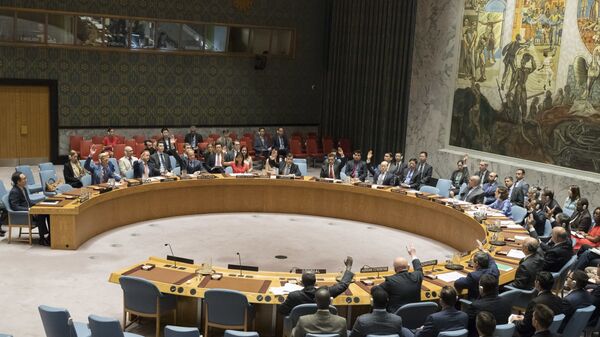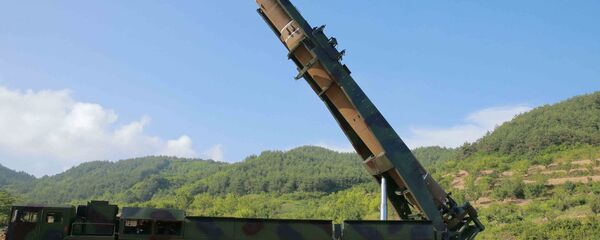UNITED NATIONS (Sputnik) — Japan, South Korea and the United States have officially requested to hold an emergency meeting of the United Nations Security Council (UNSC) over the latest North Korean ballistic missile launch, a diplomatic source from one of the UNSC member states told Sputnik Tuesday.
The date and time of the meeting have not yet been officially confirmed by rotating UNSC President Amr Abdellatif Aboulatta.
Japanese Foreign Minister Taro Kono voiced the need for increased pressure on North Korea, including at the United Nations Security Council, in relation to Pyongyang's latest launch of a ballistic missile flying over Japan's territory.
"Regardless of in which direction the missile has been fired — to the east or to the south, its flight over our territory, and even without any warning, represents serious threat for our ships and aircraft. We think it is important to impose more pressure than usual on North Korea and to take a stronger position on the issue at the [UN] Security Council," Kono said.
Russian Deputy Foreign Minister Sergey Ryabkov said that further pressure on North Korea after the latest ballistic missile launch may be expected.
"If one judges by how the colleagues from the United States and other countries, US allies of course, have acted in a similar situation, one can expect new steps toward strengthening the sanctions regime," Ryabkov told journalists.
Pyongyang's missile test was held earlier in the day. Japan's Chief Cabinet Secretary Yoshihide Suga said that the missile had flown over Japan's northern island of Hokkaido and had fallen 1,180 kilometers (733 miles) east of the island into the Pacific Ocean. According to South Korean media citing the country's military, North Korea's ballistic missile flew 2,700 kilometers and reached the maximum height of 550 kilometers.
North Korea's missile has flown over Japan for the first time in years. The Japanese military said that three stages had separated off Pyongyang's ballistic missile which was likely to be Hwasong-12. No damage to Japanese aircraft or sea vessels has been recorded. The J-Alert nationwide warning system went off in Japan over Pyongyang's missile launch.





